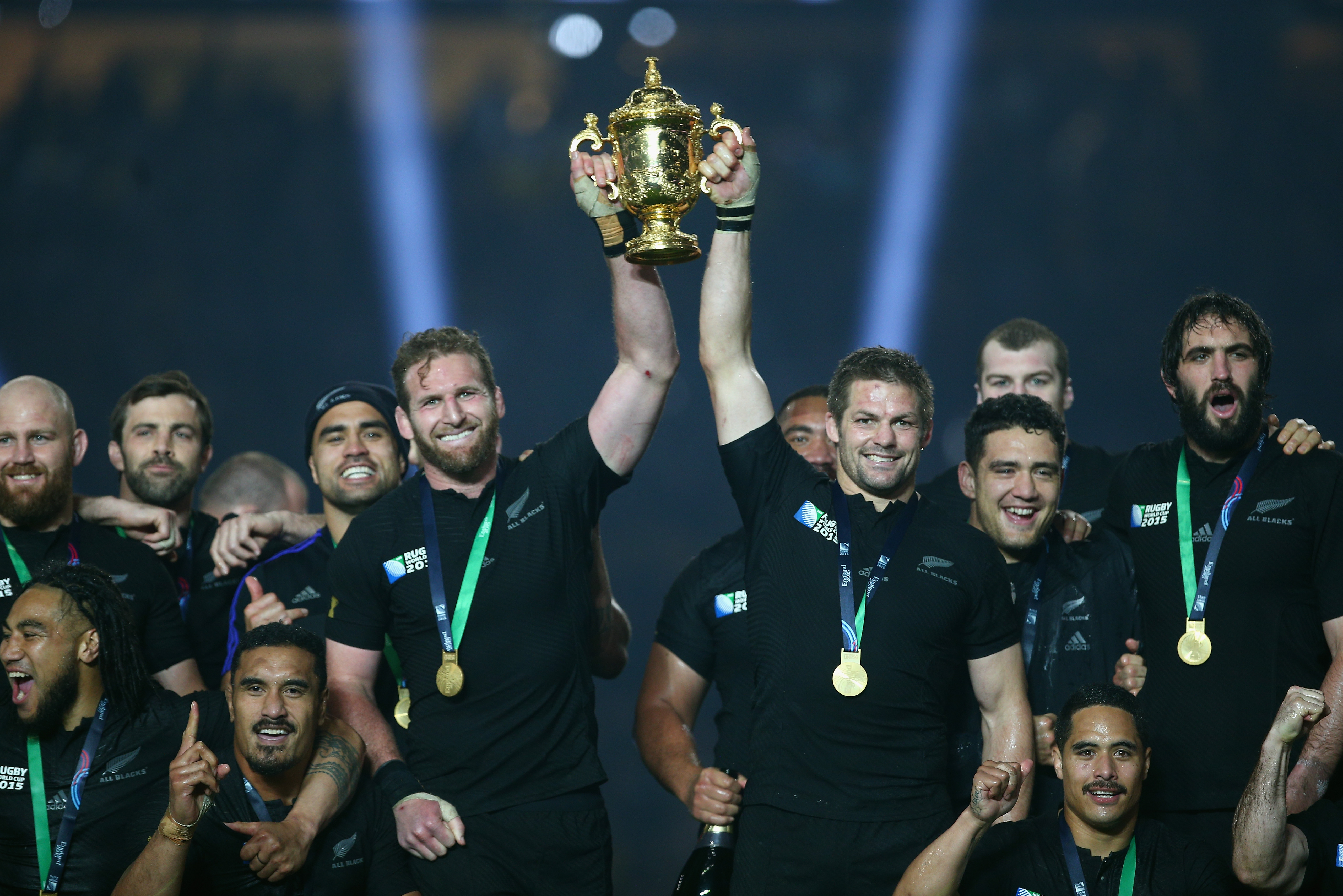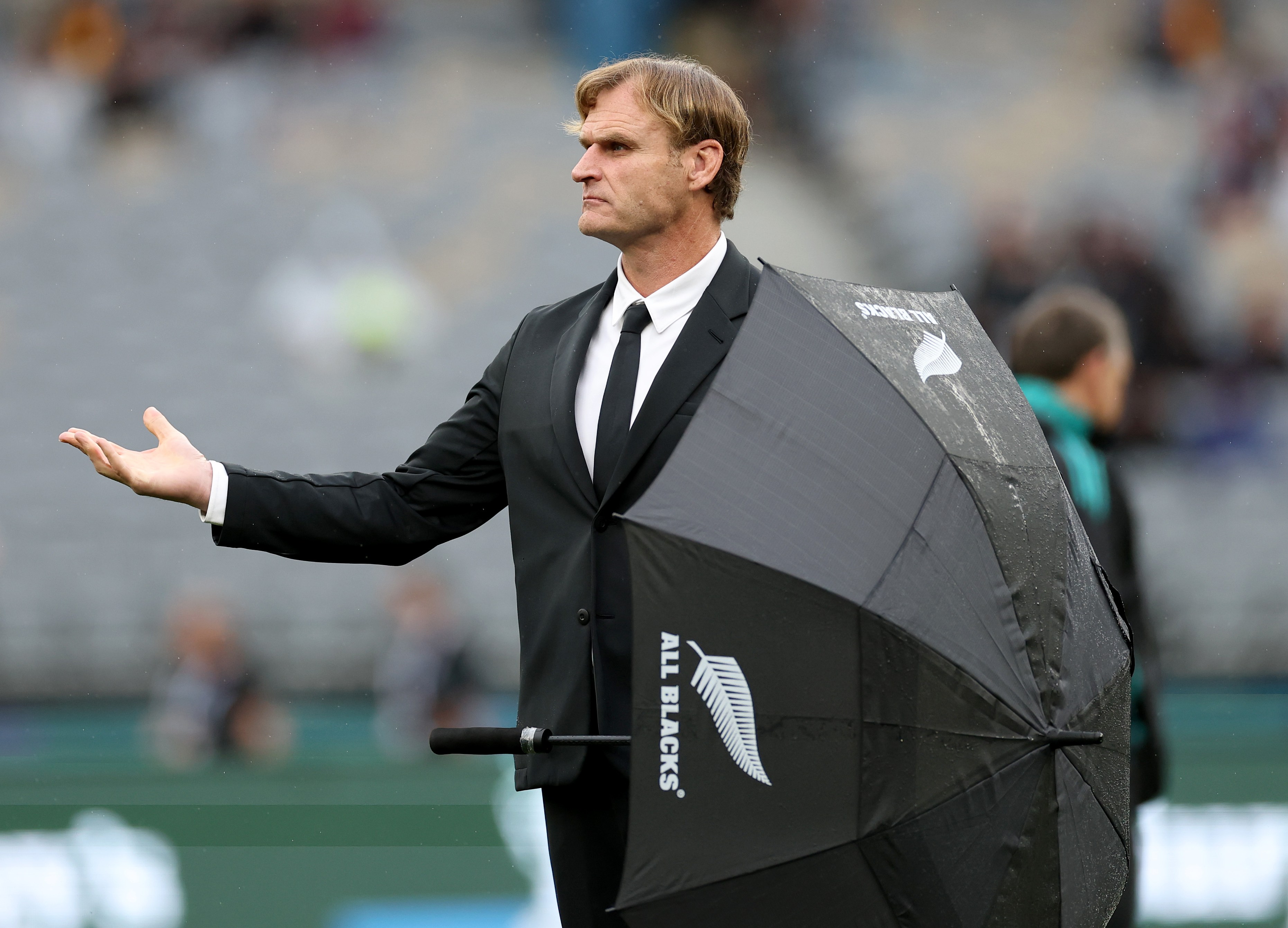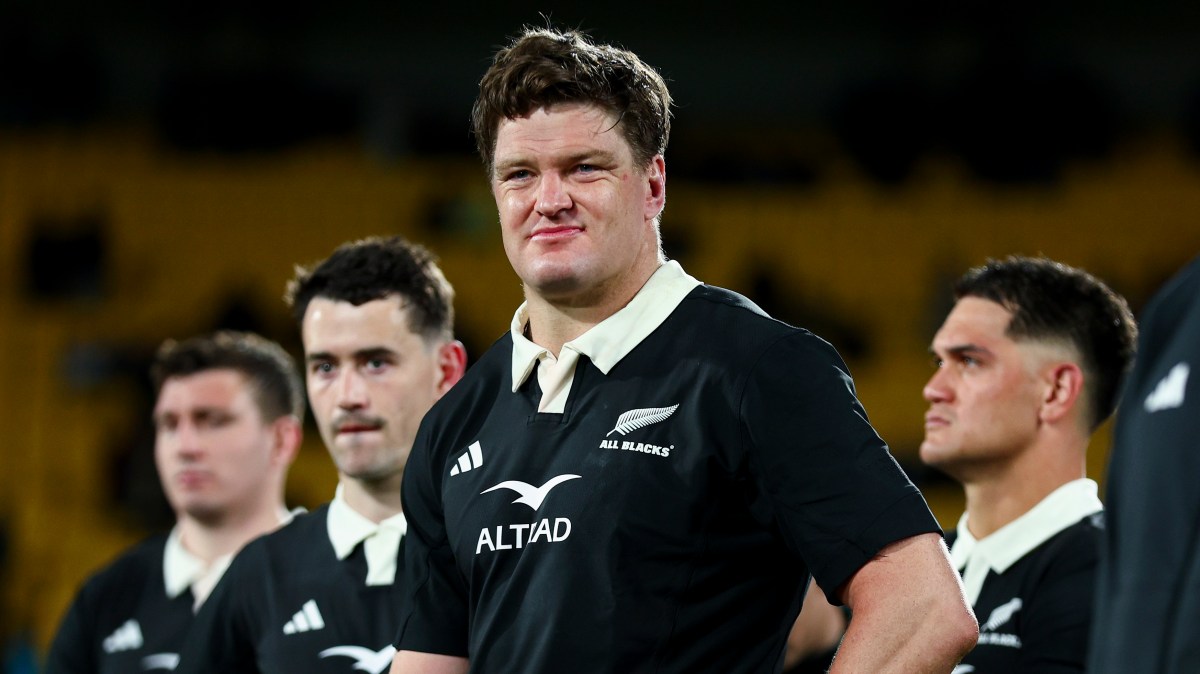Jeff Wilson, the former New Zealand wing, was hurting after the All Blacks crashed to the heaviest defeat in their history, a 43-10 shellacking by South Africa in Wellington. “What stings is that teams now believe they can beat the All Blacks. Argentina have done it, Ireland have done it, South Africa have humiliated us at home,” he said in September. “That aura has been chipped away.”
The famed All Blacks aura. It was once about mystique; this team of sublime and exotic rugby players from the other side of the world, armed with their own war cry, whom we so rarely saw play. The New Zealand Natives tour of 1888-89 introduced the haka to rugby supporters in Britain. The Originals tour in 1905 included the first Test between England and the All Blacks, played at Crystal Palace to an estimated crowd of 100,000 and won 15-0 by the visitors.
The Times match report read: “The Englishmen were absolutely outclassed by the pace, skill and resource of the New Zealanders. The visitors were never barren of an idea, whether in running, passing or kicking. They have a great belief in the dictum that attack is the best means of defence.”
It was the same in 1925, when tens of thousands clogged the roads around Twickenham trying to squeeze into the ground to watch the touring Invincibles defeat England, despite having a man sent off. In 1964 one RFU official described New Zealand’s 14-0 win over England as “perhaps the most magnificent period of rugger ever seen at Twickenham”.
It all helped to build the legend of these “rugby gods who had arrived from the bottom of the world”, as described by Matt Elliott in his book Thorny Encounters, a history of matches between England and the All Blacks.
When New Zealand played at Twickenham in 1993, £30 tickets were being sold for £1,000. Sponsors of the All Blacks took out advertisements in British newspapers that reinforced the reputation of a team from afar to be admired and feared in equal measure. “Good news, we’ll be taking them home soon,” read the strapline on an Air New Zealand advert. “Who’d want to be in England’s boots?” read another for Mizuno, accompanied by a mean-looking photograph of Inga Tuigamala.

Siya Kolisi’s Springboks have taken over from the All Blacks as the standard bearers in rugby
JAMES FOY/SPEED MEDIA/ICON SPORTSWIRE VIA GETTY IMAGES
Two years later Jonah Lomu burst on to the scene and became the mega-star who helped to drive rugby union into the professional era and persuaded Rupert Murdoch to invest $550million in the sport with the launch of the Tri Nations (now Rugby Championship).
The romance and mystery was inevitably eroded by exposure and commercialism. Adidas started using the “Ka Mate” haka in television commercials, ultimately leading to a row over copyright. Anyone with a subscription can now watch New Zealand play 14 Tests a year, including money-spinning ventures to Chicago, San Diego or Tokyo that are arranged to grow the brand.
The aura to which Wilson referred was defined by a sign pinned on the wall of the All Blacks team room before a Test against England at Twickenham in 2013: “We are the most dominant team in the history of the world”.
It was interpreted outside New Zealand as a sign of arrogance that jarred with the image of “sweeping the sheds” humility the All Blacks had portrayed since the “toxic” team culture of heavy drinking and bullying was overhauled in 2004.
The All Blacks insisted the slogan was an aspiration, a motivational tool to drive a team who barely lost. It was also a completely legitimate observation, and not especially out of line with All Black teams of the amateur era.
England won that 1993 Test 15-9 (Jamie Joseph used one of his sponsored boots to stamp on Kyran Bracken’s ankle). Sean Fitzpatrick, the All Blacks captain, acknowledged at the post-match dinner that England had deserved their victory before saying: “As an All Black we tend to remember our losses.”

Kieran Read and McCaw lift the Webb Ellis Cup after New Zealand’s World Cup victory in 2015
PAUL GILHAM/GETTY IMAGES
“He was telling us that they didn’t lose all that much,” Nigel Redman, the England lock, said. “It was poignant, and in a way a bit arrogant, but he was saying it was very special for England to beat the All Blacks because it doesn’t happen all that often.”
Redman was right. England have won only eight times in 46 Tests against the All Blacks. Like Manchester United under Sir Alex Ferguson or Michael Jordan’s Chicago Bulls, there was an inevitability about the All Blacks as they won back-to-back World Cups in 2011 and 2015 — an aura captured in the words on that sign pinned up in the Lancaster Suite of the Royal Garden Hotel in Kensington.
Having been stung by France — and their own hubris — in the 2007 World Cup quarter-final, New Zealand embarked on an eight-year quest to become the greatest team ever. Their winning record was in excess of 90 per cent as they became the first team to retain the World Cup.
Between the start of 2012 and the 2015 World Cup final, New Zealand lost only three times in 54 Tests. The All Blacks became a globally recognised byword for success in elite sport, with their values code and their famed “no dickheads policy”. NFL teams studied their methods. Books were written on how New Zealand built their success.
The All Blacks were on top for the best part of a decade. But no dynasty lasts for ever. Thread by thread, that cloak of invincibility began to fray. As Tana Umaga said last year: “Every time the All Blacks get beaten the aura takes a whack.”
New Zealand’s 2016 defeat in Chicago was their first by Ireland and marked the start of a run of five in ten meetings. It became a thunderous rivalry, with Ireland also winning for the first time on New Zealand soil in 2022 en route to a 2-1 Test series triumph.
The British & Irish Lions drew the series with the All Blacks in 2017 and England defeated them in the semi-final of the 2019 World Cup. Argentina claimed their first victory over New Zealand in 2020 and have since repeated the feat in 2022, 2024 and 2025. Throw in that record Springboks win in Wellington and the cloak is in tatters.
“Responsibility to the jersey and our history is huge,” Wilson said. “Record-breaking losses can’t just be dismissed — they change things for ever.”
Everyone knows that the All Blacks are beatable. New Zealand operate with a 76 per cent win record under Scott Robertson, who took charge after the 2023 World Cup and immediately lost an experienced core of players, including Brodie Retallick, Sam Whitelock and Aaron Smith, who retired, while Richie Mo’unga and Shannon Frizell moved abroad on lucrative contracts and are unavailable for selection.

Robertson is overseeing a period of transition and inconsistency, but there is little patience in New Zealand for the idea of a team in development
CAMERON SPENCER/GETTY IMAGES
As Richie McCaw has articulated on The Times’s The Ruck podcast, due to be released on Thursday, there is little patience in New Zealand for the idea of the All Blacks being in a state of development. Players, he says, should be ready when they get the call, but it was easier in McCaw’s day to drip-feed new players into a winning team.
Robertson is overseeing a period of transition and inconsistency, from game to game and within matches. New Zealand supporters can no longer expect to win every Test. The All Blacks are capable of some magical rugby but they are also struggling to piece together 80-minute performances.
They have scraped some wins that could easily have gone the other way over the past 18 months. All three against England in 2024 fall into that category, so too last week’s late escape against Scotland at Murrayfield.
While England and Scotland blame themselves for missed opportunities in those games, New Zealand rely heavily on a core of great players who understand how to win big games. Beauden Barrett saved the All Blacks in the Eden Park Test against England. Cam Roigard’s try-saving tackle on Darcy Graham followed by Damien McKenzie’s game-changing contribution from the bench helped the All Blacks home at Murrayfield.
Ardie Savea’s capacity for making critical interventions makes him one of the best loose forwards in the world. Will Jordan’s tryscoring record is scary, with 44 in 52 Tests, and Doug Howlett’s All Blacks record of 49 is in sight.
They have match-winning players, no doubt, and a victory at Twickenham on Saturday would leave New Zealand needing only a win in Cardiff to complete a grand-slam tour, their first clean sweep of the home nations in 15 years. New Zealand are not a poor team but nor is this a vintage All Blacks side. England will be disappointed if they do not win on Saturday, just as Scotland were last weekend. Narrow defeats by New Zealand are no longer signs of progress.
The one place in the world where the All Blacks aura still exists undamaged is Eden Park, where they are unbeaten since 1994, but the fear factor does not stretch outside Auckland. It is South Africa who are now the standard bearers on the field, powered by a culture and a collective purpose that binds them closely to their people.
Combined, that generates an aura that leaves opponents asking: “How on earth do we beat this team?” The same question that was once asked of the All Blacks.
England v New Zealand
Twickenham
Saturday, 3.10pm
TV TNT Sports 1

